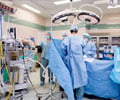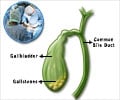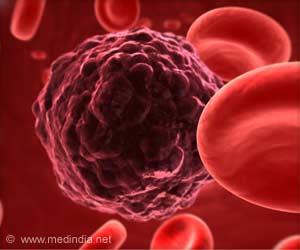A new study suggests that there is no evidence linking post-traumatic stress disorder (PTSD) with awareness of patients during anesthesia and surgery.

No Long-Term Cases of PTSD after Awareness during Anesthesia The long-term follow-up study included nine patients with a documented episode of intraoperative awareness during general anesthesia. All patients had "definite awareness with recall"—they accurately described events that occurred during their surgery. The patients were identified from previous Finnish studies of intraoperative awareness.
A median of 17.2 years after their episode of intraoperative awareness, the patients were evaluated on a battery of tests of psychosocial well-being. Assessment included formal diagnostic interviews for PTSD, along with anxiety, depression, and other psychiatric disorders. Nine patients with similar characteristics—who had undergone surgery without intraoperative awareness—were studied for comparison.
The results showed no significant difference in psychosocial outcomes for the patients with versus without intraoperative awareness. In particular, none of the patients with intraoperative awareness were diagnosed with PTSD.
In fact, in no patient did the episode of intraoperative awareness meet criteria for being a "potentially traumatic event" of the type leading to PTSD. Other measures of psychosocial well-being, including quality of life ratings, were also similar between groups. A few patients in each group had depression or other psychiatric disorders.
Ongoing Efforts Needed to Prevent Intraoperative Awareness Intraoperative awareness with recall is an uncommon but documented complication in patients undergoing general anesthesia. Previous studies have suggested that intraoperative awareness may place patients at risk for PTSD and other mental health conditions, such as depression or alcohol abuse. Because intraoperative awareness is rare, it is difficult to study the possible psychological after-effects.
Advertisement
The new report is the longest follow-up study of patients with documented episodes of intraoperative awareness with recall. Dr Laukkala and coauthors note that the patients in their study received "appropriate psychosocial support and services" and explanations of their memories and symptoms—which may have lessened the long-term impact of the event.
Advertisement
While the findings are reassuring, they do not mean there's no risk of PTSD after an episode of intraoperative awareness, according to Drs Mashour and Avidan. In their editorial, they call for further studies to understand which procedures or patients are associated with a higher risk of intraoperative awareness and PTSD, to facilitate early recognition and prompt treatment.
Read the article in Anesthesia & Analgesia.
About Anesthesia & Analgesia Anesthesia & Analgesia was founded in 1922 and was issued bi-monthly until 1980, when it became a monthly publication. A&A is the leading journal for anesthesia clinicians and researchers and includes more than 500 articles annually in all areas related to anesthesia and analgesia, such as cardiovascular anesthesiology, patient safety, anesthetic pharmacology, and pain management. The journal is published on behalf of the IARS by Lippincott Williams & Wilkins Wolters Kluwer Health .
About the IARS The International Anesthesia Research Society is a nonpolitical, not-for-profit medical society founded in 1922 to advance and support scientific research and education related to anesthesia, and to improve patient care through basic research. The IARS contributes nearly $1 million annually to fund anesthesia research; provides a forum for anesthesiology leaders to share information and ideas; maintains a worldwide membership of more than 15,000 physicians, physician residents, and others with doctoral degrees, as well as health professionals in anesthesia related practice; sponsors the SmartTots initiative in partnership with the FDA; and publishes the monthly journal Anesthesia & Analgesia in print and online.
Wolters Kluwer Health is part of Wolters Kluwer, a market-leading global information services company. Wolters Kluwer had 2013 annual revenues of €3.6 billion ($4.7 billion), employs approximately 19,000 people worldwide, and maintains operations in over 40 countries across Europe, North America, Asia Pacific, and Latin America. Follow our official Twitter handle:@WKHealth.
Source-Eurekalert









